Made for Marketing Agencies
and Their Workflows
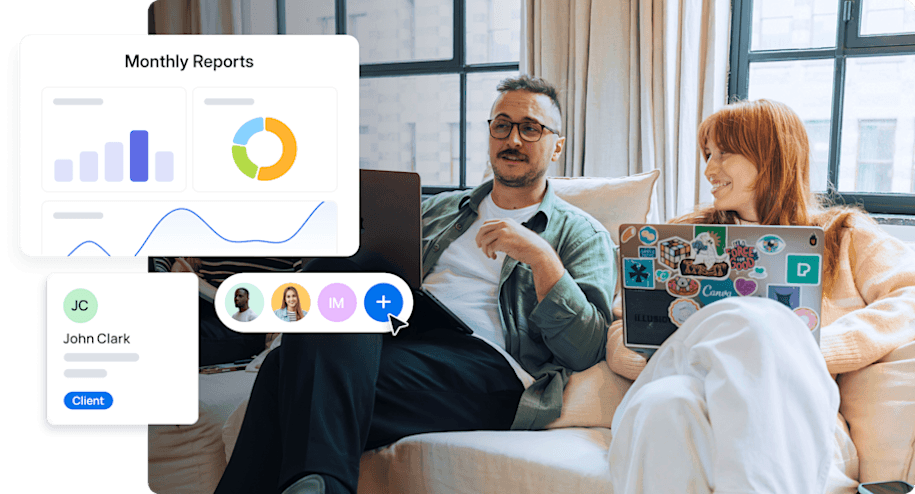
Share Results
Deliver client-ready reports that look great and send themselves. Save time and look polished with automated, white label reporting tools.
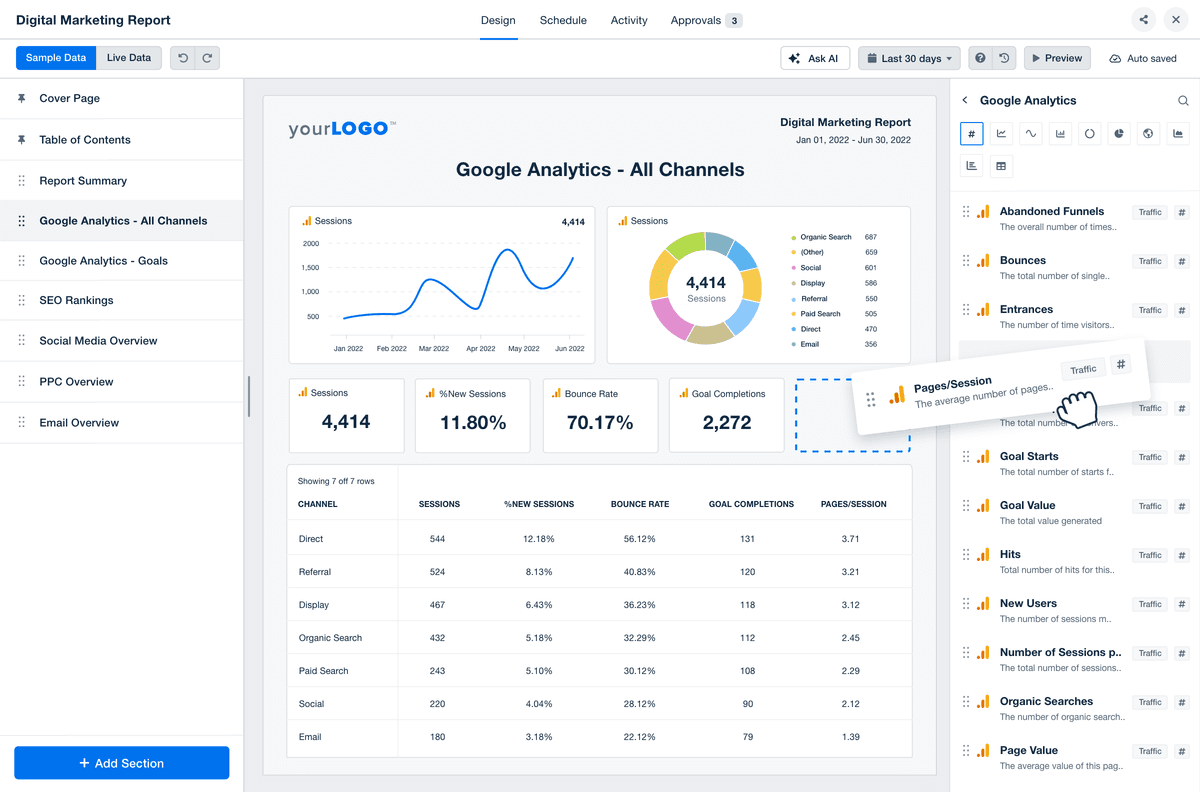
Automated Reports
Send professional, client-ready reports automatically, on your schedule.
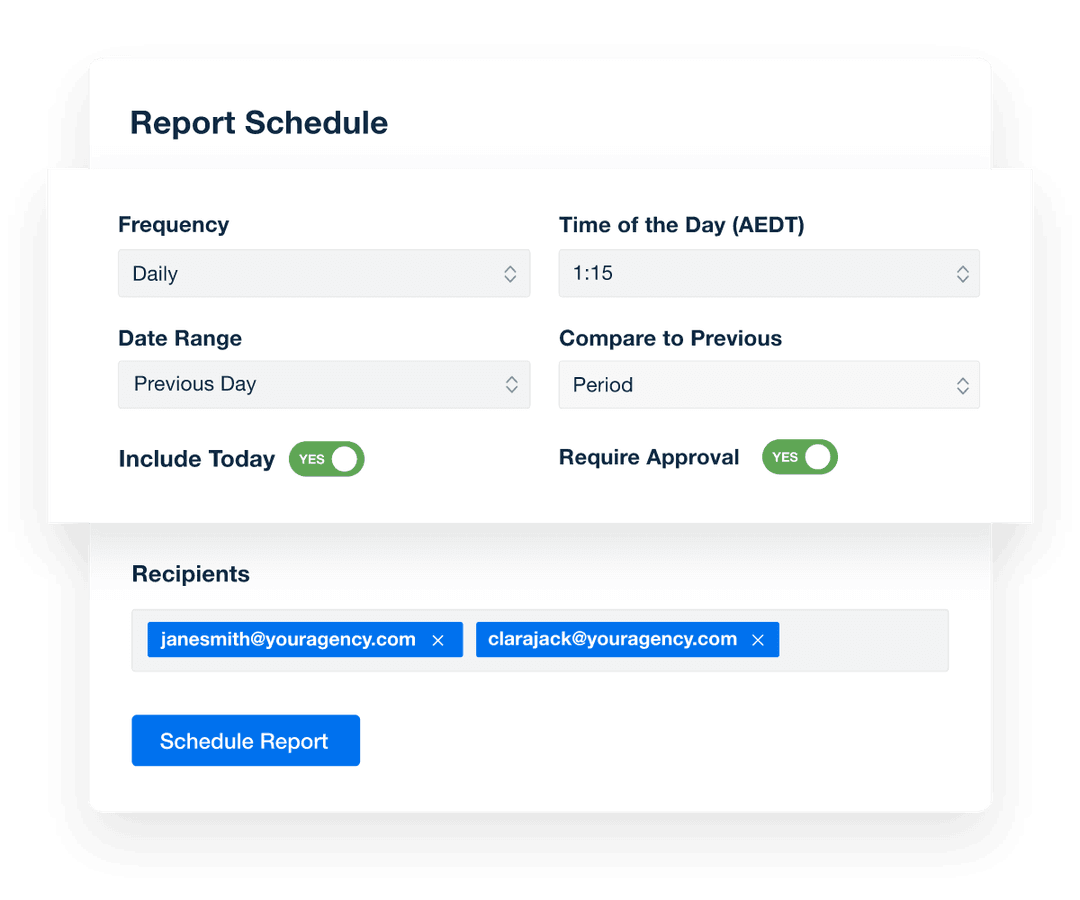
White Label Branding
Add your logo, color scheme, and domain to create a polished client experience.
Easy-to-Use
Drag & Drop Editor
Quickly build reports and dashboards tailored to each client.
Report & Dashboards Templates
Get started fast with professionally designed layouts.
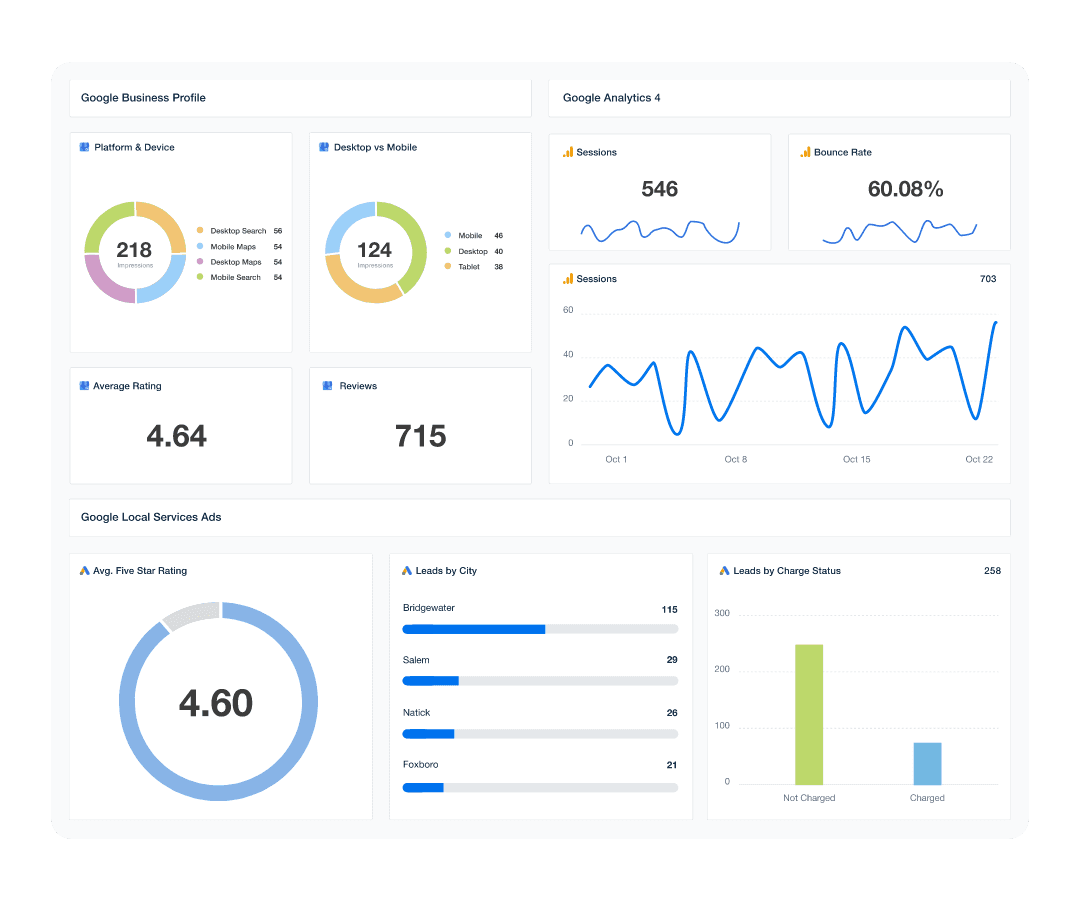
Monitor Performance
Keep a pulse on what’s happening in every client campaign. Track key metrics across 80+ data sources and stay proactive with alerts and goals.
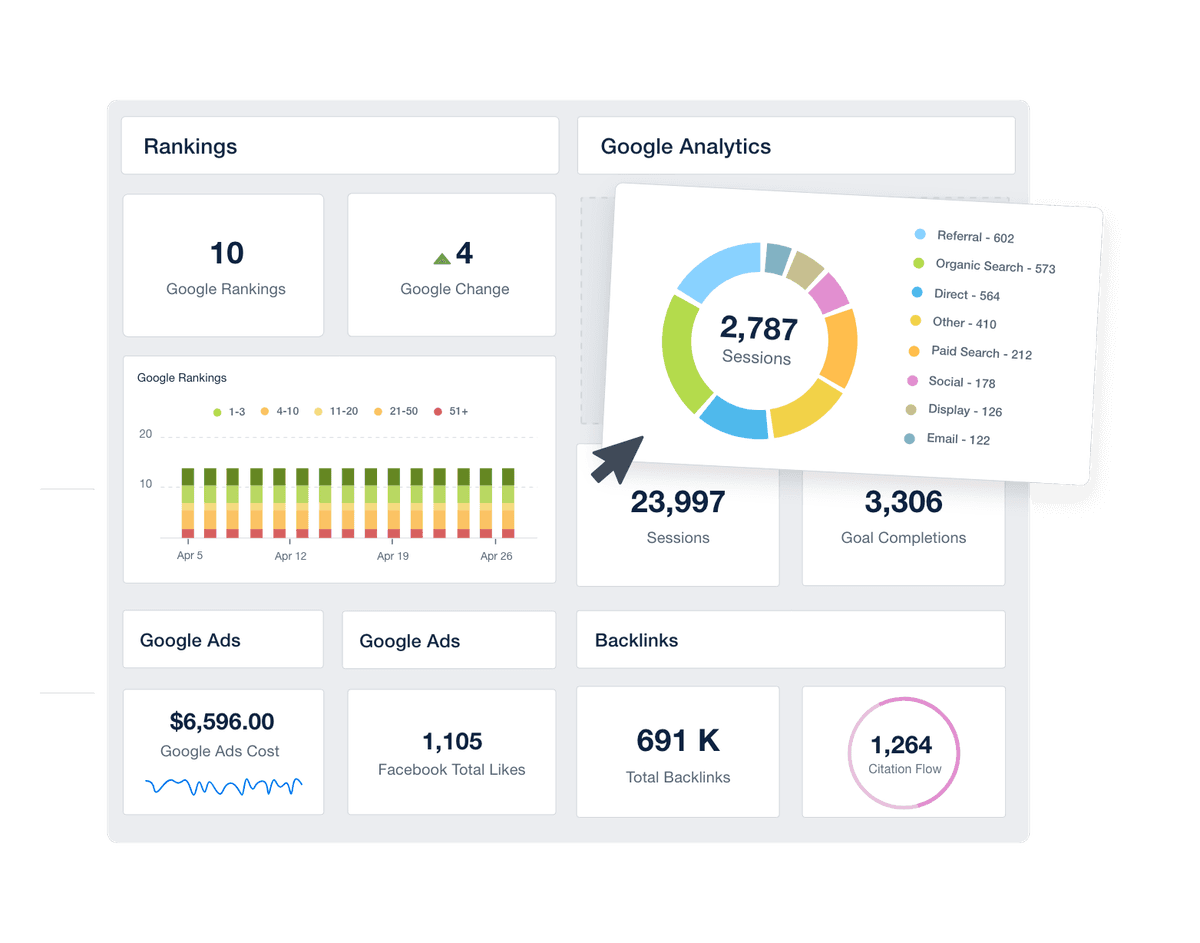
Custom Dashboards
Visualize exactly what matters for each client’s campaigns.
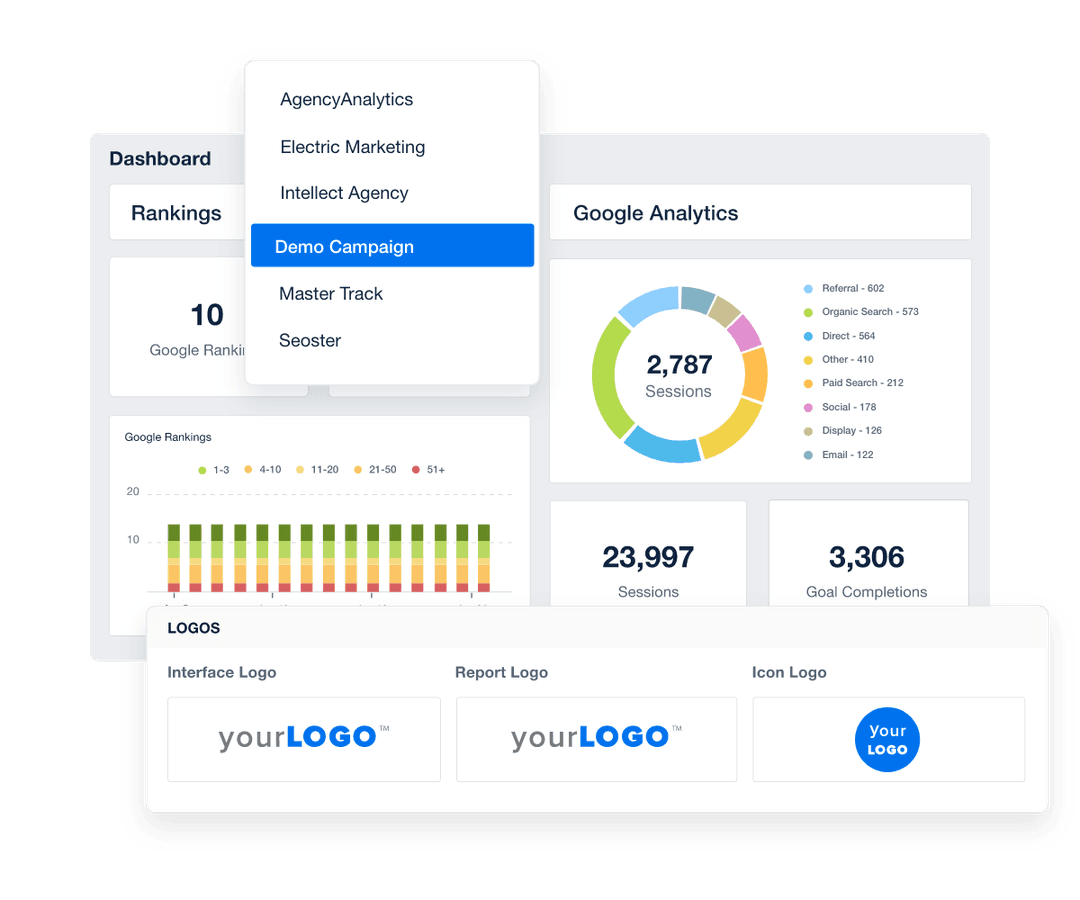
Goal & Budget Tracking
Measure campaign progress and spending against your targets.
Metric Alerts
Get notified instantly when key metrics move beyond thresholds.
Roll-up Reports & Dashboards
Combine data from multiple clients, brands, or locations into one view.
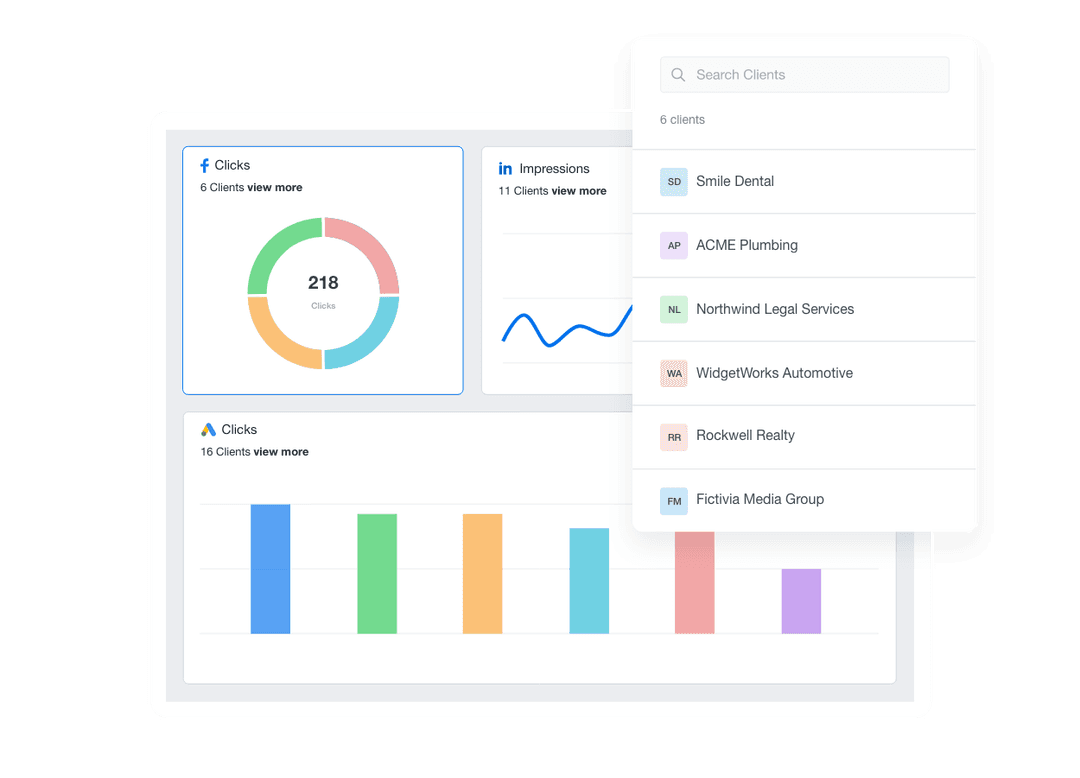
Gain Insights
Move beyond the surface with data that tells a story. Uncover opportunities, trends, and benchmarks to guide smarter decisions.
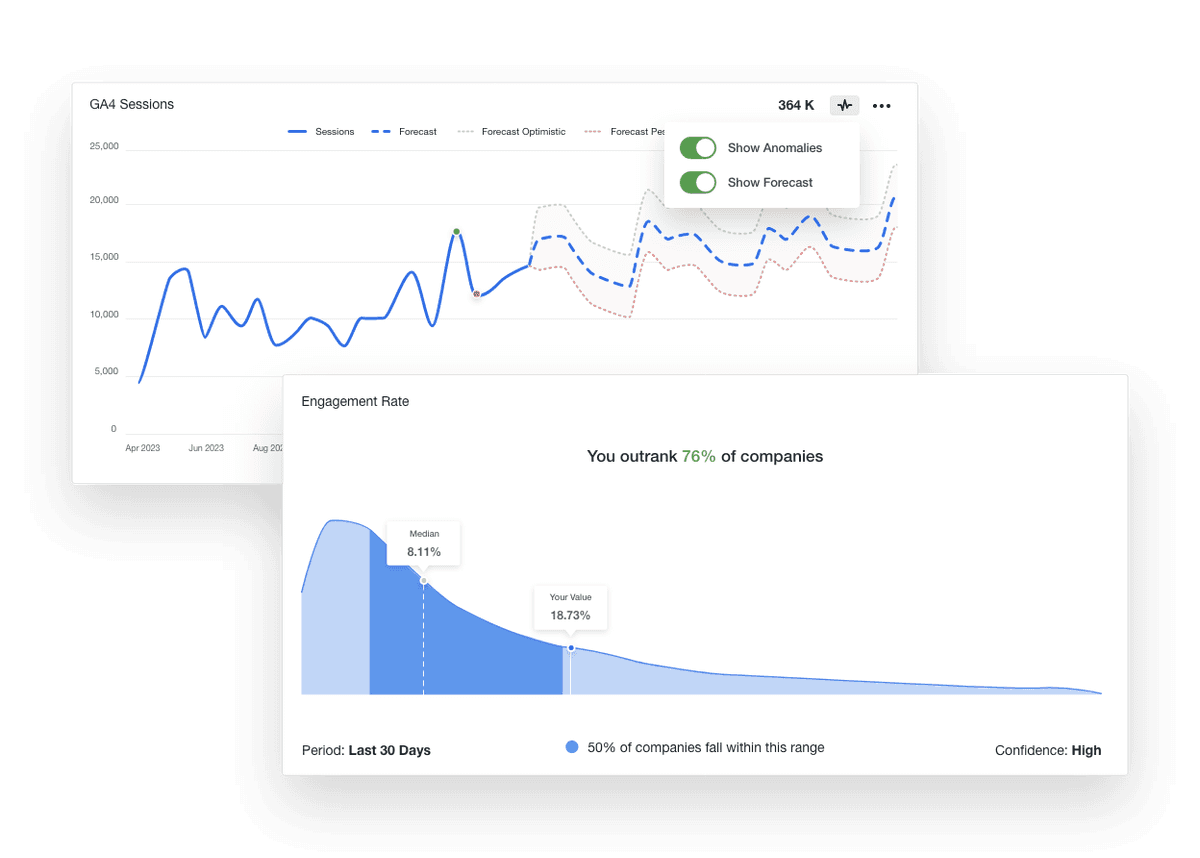
AI Analysis
Let AI surface trends, summaries, and opportunities in your data.
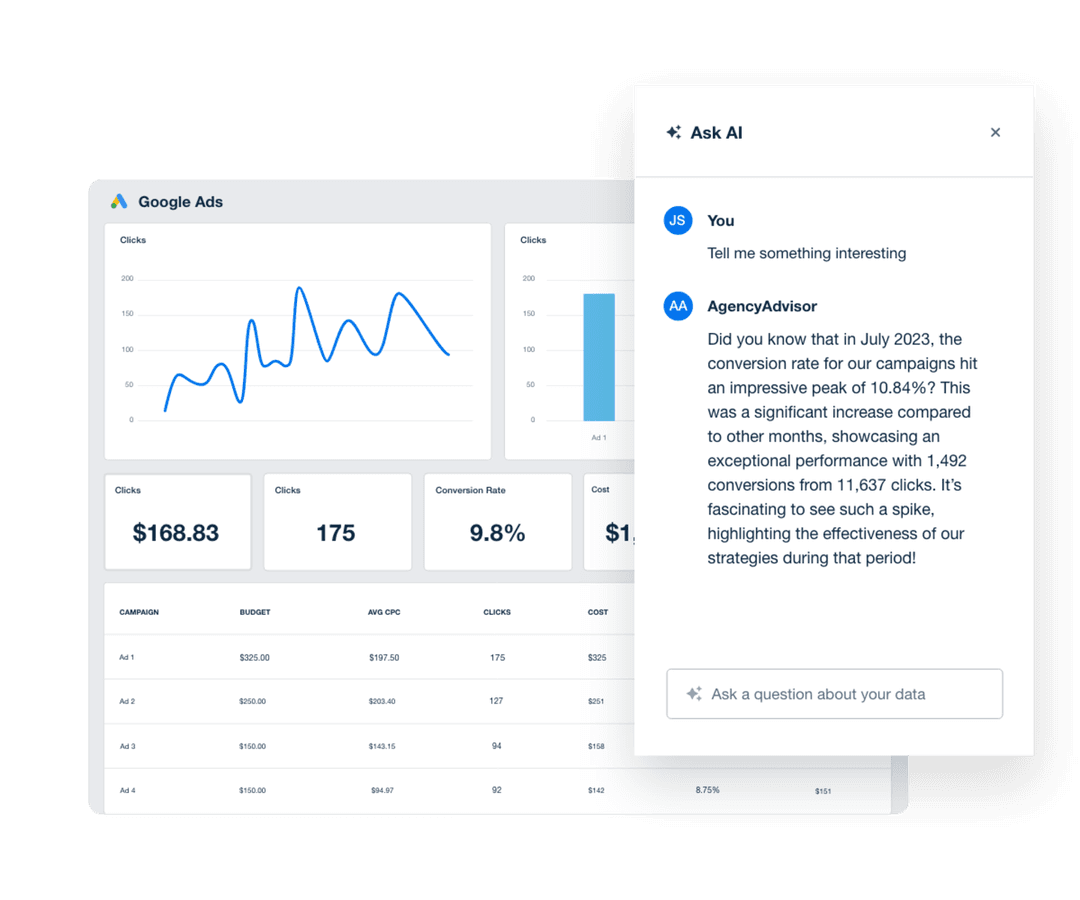
Benchmark Comparisons
See how your client results stack up against industry averages.
Anomaly Detection
Automatically flag unusual spikes and drops in performance.
Trend Forecasting
Automatically predict future outcomes based on historical data.
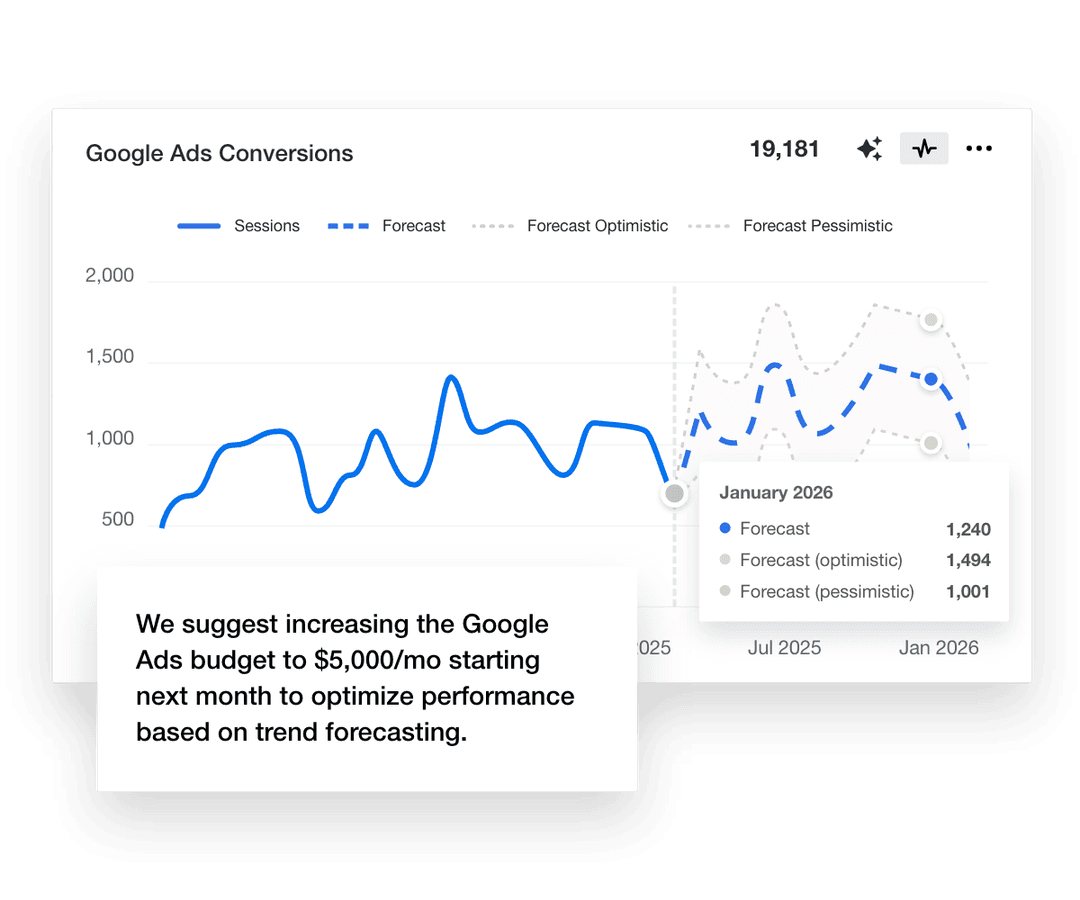
Manage Clients
Streamline operations and improve the client experience. Keep your agency organized and your clients in the loop, without the back-and-forth.
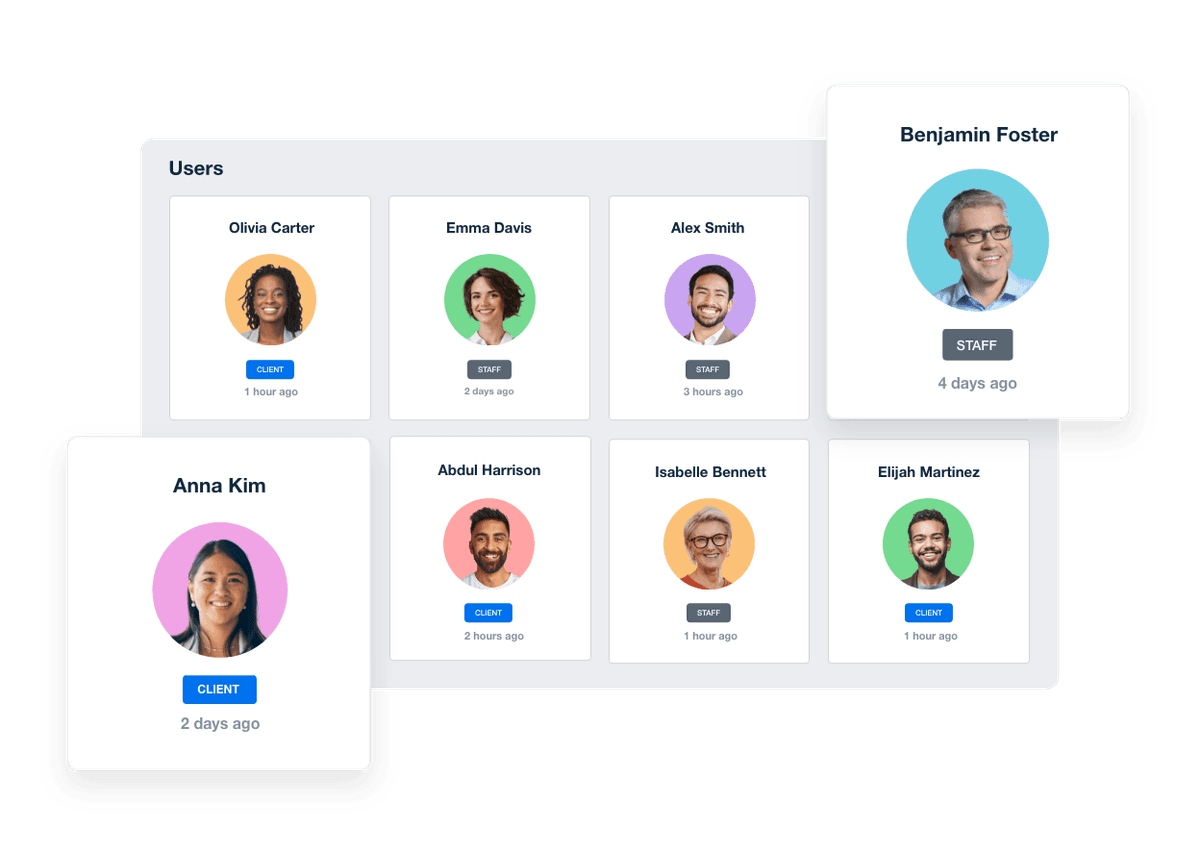
Client Portal
Give clients secure, branded access to their data and reports.
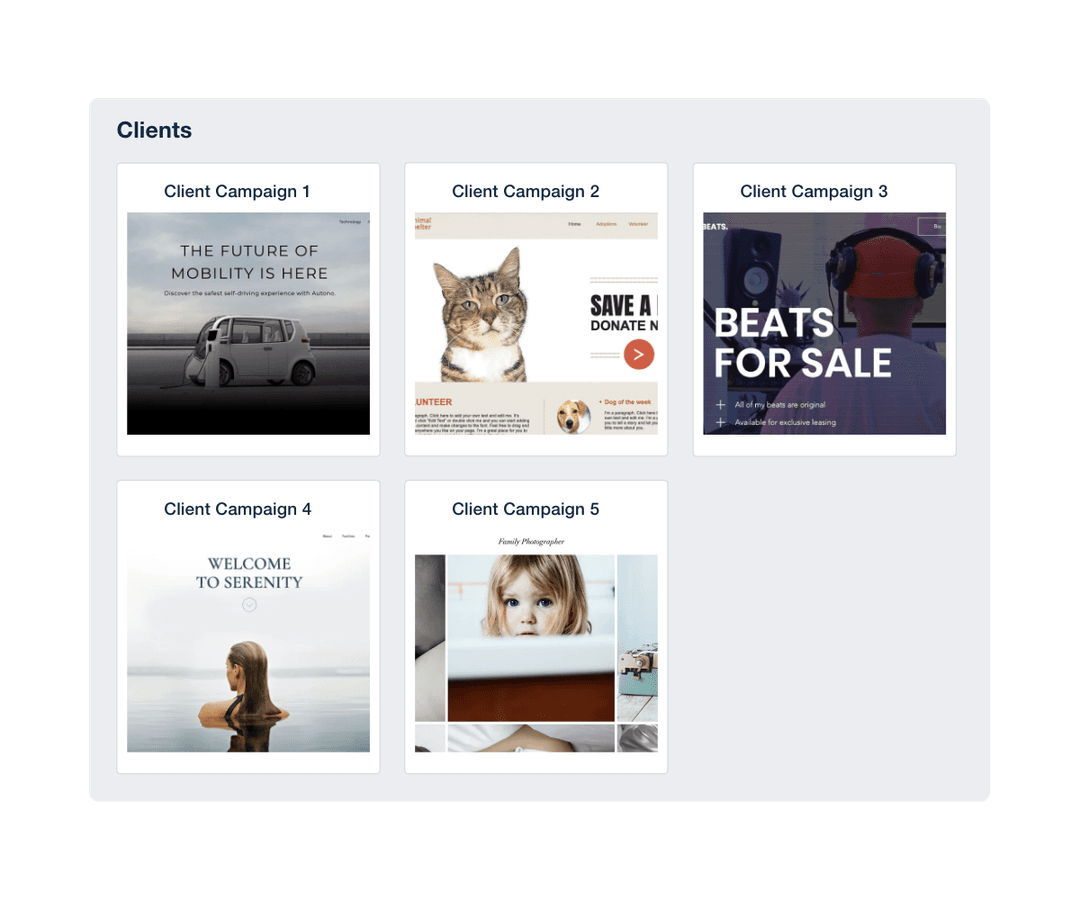
Client Communication
Share updates and insights directly through the platform.
Access Control
Manage permissions for every client, teammate, or stakeholder.
Task Management
Assign tasks, set deadlines, and track progress within your team.
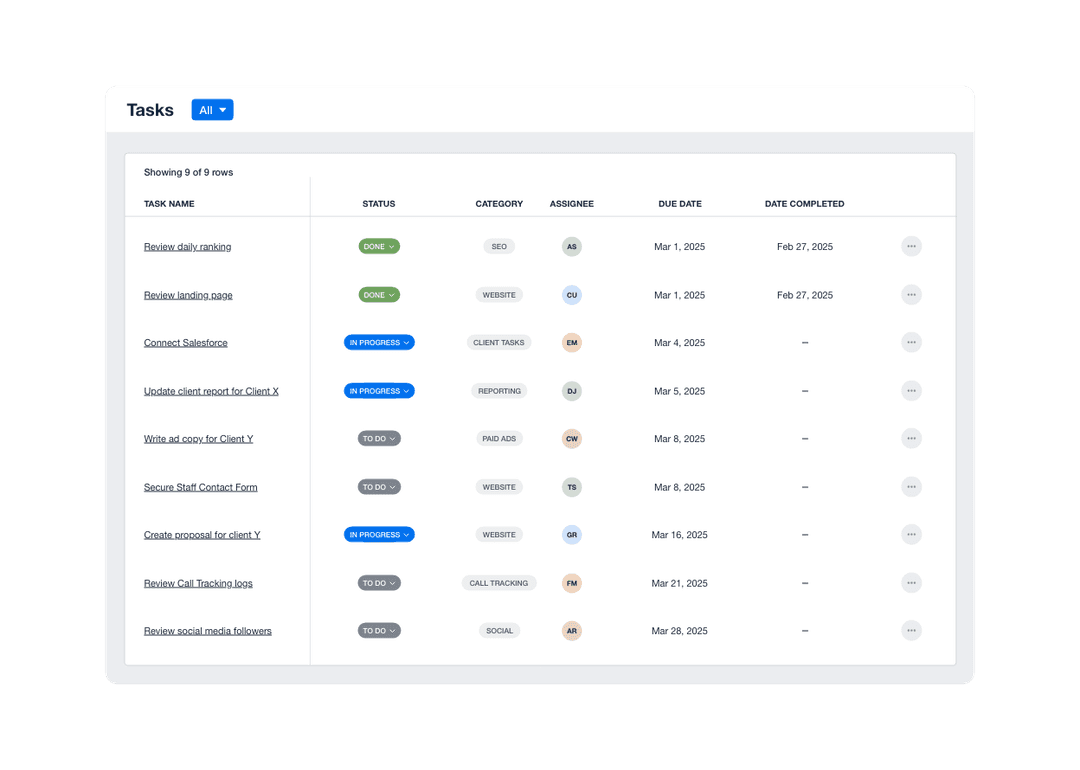
See how 7000+ marketing agencies help clients win
Start Your Trial NowFree 14-day trial. No credit card required.
